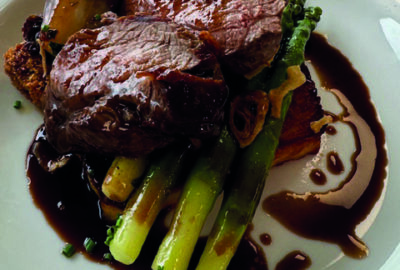Well-known for his ability to produce some of the most amazing Indian food that you are ever likely to eat, it comes as a surprise to many that until 2011, Michelin star winner Sameer Taneja had never cooked Indian food in a professional kitchen. Having worked with the likes of Michel and Alain Roux, Joel Antunes and Pascal Proyart, Sameer takes his inspiration from flavours and techniques from around the world, honing them into dishes that have earned him a reputation for being one of London’s most esteemed chefs.
When working on new dishes, what is your development process?
At Benares, one of the unique ways I like to work on creating new dishes is by asking the chefs and kitchen team to bring in their home cooking, then we all try the different dishes. Our chefs come from different communities and parts of the continent, which enables us to combine different tastes of the world with a unique and adventurous format. From there, we work together to start developing the dish. I also use my experience and techniques from working in a European kitchen, combining Indian flavours and spices, as well as my own home cooking.
What cuisines, flavours or techniques are you enjoying right now?
I don’t really have a favourite technique or flavour; I love all kinds of cuisine in any format: fine dining, casual, Italian, Chinese, Thai, Peruvian! Today food is seen and enjoyed in a very different way. It is breaking away from its traditional boundaries and becoming very eclectic with a complexity of flavours – I find I tend to choose my food depending on my mood and what I want to eat on the day.
Have you experienced any setbacks in your career and how did you deal with them?
Oh of course, and I’ve learnt from them. I think every setback you have can teach a lesson and help make you stronger. For example, the pandemic was the biggest setback not only for me but for the whole world. The team and I put our minds together and by maintaining a positive outlook, Benares was one of the first restaurants to start cooking for emergency services as well as pivoting to home deliveries. Of course, the pandemic was an ongoing problem, but we thought of ways to adapt and ran with them.
How has your experience shaped the boss, manager, and mentor you are today?
I’ve never really thought myself in any of those positions! As Executive Chef I am stable, calm, and composed which helps to stabilise the business and the dishes we create. It also helps me understand what I want to achieve with my team. As a manager, I will not say my skills are extensive, but we all follow the rules, and whenever there is a fault, I take the responsibility for it. I also try to get the best out of my team and work to their strengths. We all have things we are good and not so good at, but we talk about them and deal with it together.
What advice would you give to someone starting out in the industry?
Dream high! Keep your head down, push, document the processes and most importantly, be disciplined. Respect yourself, respect others, and respect what you do. Being a chef is the most beautiful job I could ever imagine.
How have you honed your skills over the years – are they self-taught or have you had any professional training?
I hone my cooking skills every day – perfecting my craft and always learning from people around me. I had professional training which gave me a good start, with my first job at the Rajvillas Jaipur, India – part of Oberoi Hotel Group. After that I moved to the UK and worked with luminaries such as Pascal Proyart of One-O-One Restaurant (2003-2009); Michel and Alain Roux of three Michelin-starred Waterside Inn (2009-2010); Joel Antunes of Brasserie Joel (2010-2011) and Pierre Koffmann of Koffmann’s (2011- 2012) where I gained skills and techniques in classical French and Indian cuisine, that I now use in my dishes at Benares. However, what I think really helped me was the discipline I’ve held over the past 20 years, working with the world’s top chefs, with hunger and eagerness to learn, and I’m getting better every day because of that discipline.
I do think that people are getting back to basics and trying to connect with other cultures, rather than reinventing the wheel. People are going for healthier options and trying to eat more natural ingredients, with a huge focus on sustainability. It’s so important and at the forefront now for chefs to get the most out of every ingredient.
How would you like to see the industry change in the future?
Change is good – it brings development. I generally would like to see more people choose hospitality as a career and enter the industry since it’s a wonderful medium to connect the world and to express yourself. There should be more opportunities, encouragement and resources to help the industry flourish.
What inspires you to continue working in the hospitality sector?
For me, I find hospitality satisfies you to the core. This industry is a blessing, and while finding this path was somewhat an accident in my life, I don’t know if I could do anything else. I meet the best people; I learn every day and it’s such a natural way to express yourself – it couldn’t be better.


